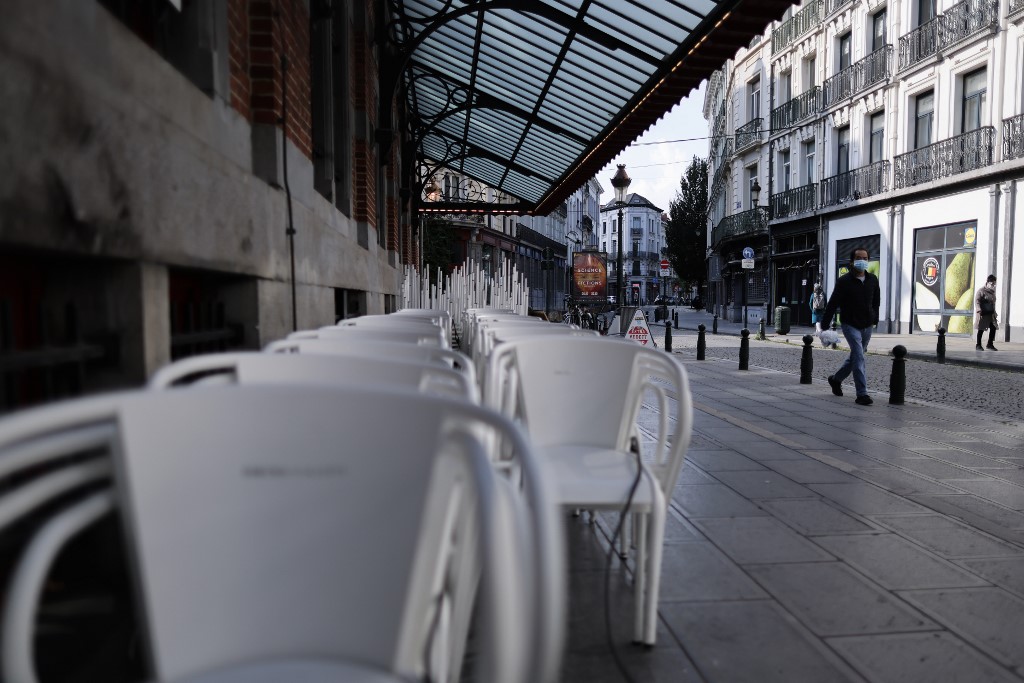BRUSSELS, Oct. 24 (Xinhua) -- The Minister-President of the Brussels Capital Region, Belgium, Rudi Vervoort announced on Saturday more drastic measures will be implemented to fight against COVID-19 at a meeting with 19 mayors of the region of Brussels.

This picture taken on October 19, 2020 in Brussels shows stacked chairs outside a closed restaurant, on the implementation day of new sanitary measures aimed at curbing the spread of the Covid-19 (novel coronavirus) outbreak. (File photo: AFP)
A curfew has been extended from 10 p.m. to 6 a.m. Cinemas, theatres, museums, cultural centers and exhibition venues will be closed. Sports halls will also be closed, and the wearing of masks will remain compulsory throughout the Brussels region. These new measures will come into force on Oct. 26.
Meanwhile, the governments of Wallonia and the Wallonia-Brussels Federation implemented a partial lockdown on Friday. The government of Wallonia has entrusted the governors of the five provinces of Wallonia with the task of enforcing a curfew from 10 p.m. to 6 a.m. until Nov. 19.
The figures on the epidemiological situation in Belgium are still increasing. In the seven-day period (from Oct. 14 to 20), an average of 11,201 new infections per day were reported on Saturday by the public health institute Sciensano. A daily average of 37.1 deaths was also reported by Sciensano during the period.
Over the last seven days (from Oct. 17 to 23), the average number of hospital admissions was 399 per day. Currently 4,061 COVID-19 patients are hospitalized, 632 of whom are in intensive care.
To date, Belgium has recorded 287,700 COVID-19 cases and 10,658 deaths.
As the world is in the midst of the COVID-19 pandemic, countries across the globe -- including China, Russia, Britain and the U.S. -- are racing to find a vaccine. According to the website of the World Health Organization, as of Oct. 19, there were 198 COVID-19 candidate vaccines being developed worldwide, and 44 of them were in clinical trials.


